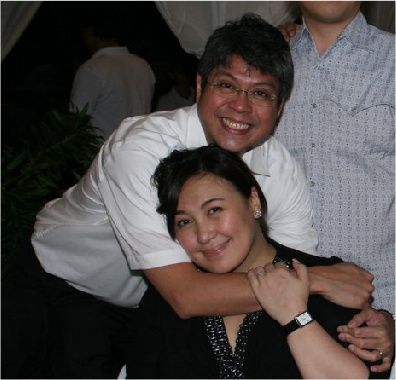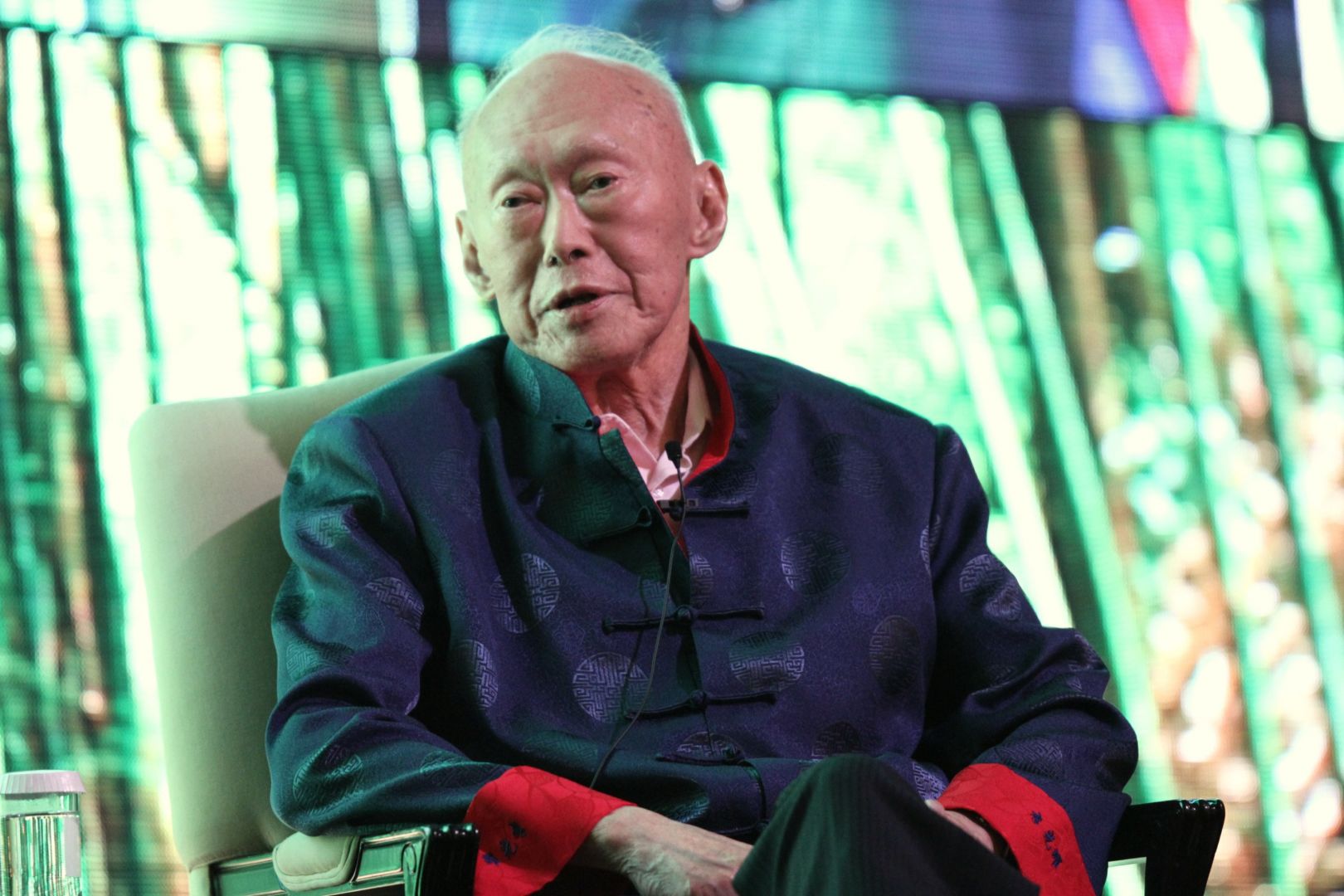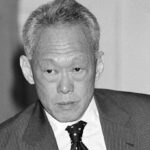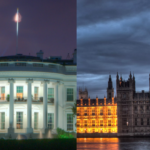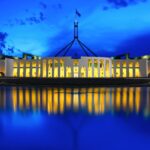Sen. Pangilinan & the Parliamentary System
Just before I published my recent essay that related the soccer versus basketball issue to the presidential versus parliamentary debate, a few statements made by Senator Francis “Kiko” Pangilinan which appeared in the July 3, 2010 Manila Standard caught my attention, and I quote the Manila Standard article as follows:
“Personally, I am against a parliamentary system. It is not the form of government that is important. It’s like you are being made to choose between a sedan and a truck. What if you do not know how to drive? I believe that it is not the form of government but the political leadership we should be concerned about,” he told newsmen at the Balay Aquino-Roxas, the LP headquarters in Cubao, Quezon City.
He argued that if the presidential system has its flaws, the parliamentary system has its flaws too. In Australia, he said legislators are now debating whether they should shift from a parliamentary to a presidential system.”
I am essentially trying to pull my punches as I write this because two of my own sisters are friends of one of Senator Kiko’s own staff members. I must admit that it is extremely difficult for me to do so because a highly-educated and intelligent person like Senator Kiko should not be making such errors of analysis, or worse, errors of fact.
I sincerely hope that Senator Kiko takes the time to read through my recent essay entitled “Philippine Progress: Shift in Sports, Shift in System” because by simply doing so, he may learn to understand that his bias against proposals to shift towards the Parliamentary System is extremely misplaced and unfounded.
For one thing, different systems very often do yield different results. Some systems are better – or worse – than others. Coming from an IT background, I have had to deal with this fact all the time as some operating systems like Microsoft Windows Vista, are technically faulty and cause more system crashes than others, causing end-users to avoid such operating systems like the plague and either prefer to downgrade to its predecessor – Windows XP, upgrade to its newer successor – Windows 7, while still using the same piece of hardware, or decide to make a wholesale shift to Apple’s MacOSX platform.
(Note: I used to work for Microsoft and still maintain a certain loyalty to the company, yet I cannot pretend that MS Windows Vista wasn’t a lemon.)
As much as people may want to insist that “it’s not the system, it’s how you use it” or “it’s not the system, it’s who’s using it”, ceteris paribus, the fact remains that a competent and expert user who knows what he’s doing can still waste a lot of time having to deal with system crashes that are no fault of his own. Between using a system that is prone to crashing on the one hand, and using a more robust and stable system that seamlessly works on the other, an expert user will clearly get a lot more things done using the stable system. Obviously, as some systems are indeed better than others, the more stable systems allow users to get more things done without interruption.
The good Senator also needs to realize that some systems favor certain traits over others. A Presidential System, due to the manner in which the Philippine electorate tends to choose the President based on “winnability”, clearly favors popularity and name-recall over competence. In other words, popularity greatly determines whether a candidate wins within a Presidential System and everything else is secondary. Of course, the ratios are not the same. France and the United States, for instance, both use Presidential Systems (France is sometimes described as “semi-Presidential”), yet competence and platform figure a lot more than in the Philippine setting – albeit a presidential candidate’s popularity is still the major determinant – in how presidents in those countries get elected. A Parliamentary System, on the other hand, favors parties with the most relevant platforms (as well as the overall competence in getting things done) that the per-constituency electorate can identify with versus parties whose platforms and lower levels of competence the electorate will avoid.

Axes of Competition: Diagram shows how the best person makes it at the top of his party (vertical) and how the party with the most relevant platform gets majority of all parliamentary seats (horizontal)
Moreover, due to merit-based competition within the various parties in a Parliamentary System, the most competent party members with the best leadership skills emerge at the top of the party’s leadership as “Front Benchers.” Within a party, the best member among the best gets on top (vertical competition), while the others become deputies and hold important positions within the party. In short, there is very little chance that an incompetent member of parliament can ever become Prime Minister. The intra-party competition that has more to do with competence and ability, rather than popularity ensures that.
By gaining a better understanding of how the Parliamentary System works, Senator Pangilinan will better understand why India, despite having millions of ordinary people who worship Bollywood Stars and Cricketeers has never ended up with any of them ever becoming Prime Minister. He would realize that it is totally possible for an extremely competent technocratic economist like Manmohan Singh to end up Prime Minister without having to do song-and-dance numbers for India’s masses, and on the other hand, while the Filipino masses – who like India’s masses, also worship our movie stars, TV celebrities, our basketbolistas and boxing legends, ended up voting for an incompetent movie star in 1998 and almost made him win again just last May (despite having been deposed in 2001 and convicted of Plunder). In 2004, his good friend and fellow movie star, the late FPJ, almost won as well.
Republicanism in Australia: Shift from the British Monarch to an elected President as Head of State
This brings me to the next part: Senator Pangilinan’s mention of Presidentialism in Australia.
Let us review the good Senator’s statement: “…the presidential system has its flaws, the parliamentary system has its flaws too. In Australia, legislators are now debating whether they should shift from a parliamentary to a presidential system…”
I’m afraid that Senator Pangilinan is grossly misinformed. Get Real Philippines itself has Australia-based members on the ground who have explicitly confirmed that his allegation that “In Australia, legislators are now debating whether they should shift from a parliamentary to a presidential system” is either a grossly deliberate misrepresentation of facts or the result of faulty research.

Competent & Mandarin-fluent: Rudd improved ties w/China but resigned due to a controversial Mining Tax proposal
To set the facts straight, Senator Kiko needs to be corrected for him to realize that Australia has no quarrel with the Westminster Parliamentary System it currently has in place. Indeed, he is right that no system is perfect, but Australians generally acknowledge that their current Westminster Parliamentary system works for them – quite well, in fact. In contrast, an ever-increasing number of Filipinos are now beginning to acknowledge the role that the Presidential System has played in the country’s poverty, underdevelopment, and inability to fix its own problems.
Was it the recent high-profile change in Prime Minister where the Australian Labor Party’s Kevin Rudd vacated the Premiership and his deputy, Julia Gillard became Prime Minister that led the good Senator to mistakenly proclaim that “legislators are now debating on whether they should shift from a parliamentary to a presidential system?”
Australians have accepted that such is exactly how a Parliamentary System should work!
A parliamentary system ejects Prime Ministers who ram down proposals (like Rudd’s proposed Mining Tax) to Parliament without properly consulting the ruling party’s own Members of Parliament. Ordinary MP’s from Rudd’s own party, for instance, feared that if Rudd pushed through with his Mining Tax proposal, they would lose the support of their own constituencies (since Australia is heavily-dependent on mining) in the next elections, and that’s why Rudd was asked to resign. That is precisely the beauty of the parliamentary system: Prime Ministers have to listen to their own members of parliament, otherwise, those who put their own party at risk face the prospect of losing their position as leader of their own party.
Kevin Rudd’s departure from the Australian premiership is paralleled by Tony Blair’s retirement and replacement by his deputy, then Chancellor of the Exchequer Gordon Brown. Tony Blair, like Kevin Rudd, enjoyed a certain level of popularity due to personal charisma in addition to personal competence, yet largely because of Tony Blair’s unfortunate decision to go along with George Bush’s adventures in Iraq, where Weapons of Mass Destruction were eventually not found, the British Labour Party gradually suffered a massive diminution in the party’s popularity ratings as a result of Blair’s decision on Iraq. Sensing that the Labour Party was going to lose its majority if it continued on with Tony Blair at the helm, Blair was politely advised by his own party members to “retire.” And retire he did – his swansong as PM being the conclusion of Peace Talks with the Irish Republic Army in Northern Ireland. And it was there that Gordon Brown, Blair’s then second in command, took over.
(Note: While the British spell “Labour Party” the British way with “ou”, in Australia, the official name of the “Australian Labor Party” is spelled the American way without the “u.”)
Thus, parties who continue to enjoy majority support from the population by continuing to win a majority of parliamentary seats reward their leaders who continue to lead them well by granting them longevity as Prime Minister. But on the other hand, Prime Ministers who make fatal mistakes such as Kevin Rudd’s controversial Mining Tax or Tony Blair’s miscalculated involvement in Iraq find themselves “punished” with retirement or ouster. That dynamic within the Parliamentary System of parties causing their own leaders to resign or retire is the “check-and-balance” that ensures that a parliamentary system continues to be more representative and responsive to people’s real needs, much more than a Presidential System could ever be.
Thanks to a superior system such as the current Parliamentary System already in place in Australia, there really is no talk about shifting from Australia’s parliamentary form of government to a presidential one. What exists, on the other hand, is a relatively strong movement to shift Australia away from being a Constitutional Monarchy with the reigning British Monarch, Queen Elizabeth II as Head of State (currently represented by an appointed Governor-General) towards becoming an Independent Republic with a President – elected by Parliament – to act as a ceremonial Head of State.
That movement has less to do with the form of government than it has to do with expressing Independence from Australia’s “personal union” with the British Crown. That movement is called the Australian Republican Movement. There are others within the movement who propose having a directly-elected President (elected by the people, as opposed to the dominant proposal that the President be elected by Parliament) as Head of State, who will also be powerless and ceremonial just like the role of the Queen (proxied in Australia by the Governor-General).
Of course, there does exist an extremely infinitesimal number of people within the Australian Republican Movement who have floated the idea of having an American-style President (who is powerful and holds executive powers) , but that faction is marginal, and such a proposal has not even reached the critical level of intra-parliamentary debate that would get ordinary citizens talking about it. Instead, the debate that does continue to be pervasive regarding the word “President” is still firmly within the proposal to replace the British Monarch with a non-hereditary President as ceremonial Head of State.
To reiterate, there is no debate about shifting from a parliamentary form of government towards a US-style Presidential one within parliament nor is there one that attracts the general Australian citizenry’s attention. Besides, such a direction from Parliamentary to Presidential is extremely unlikely considering that there are actually more countries that have already shifted from Presidential to Parliamentary, such as Moldova (transitioned in 2000), Lebanon (transitioned many many years ago during the late Rafik Hariri’s term), Kyrgyzstan (newly-transitioned – April 2010), or Ukraine (currently in transition).
Moreover, there are other countries who are currently considering making the shift; Afghanistan (proposed by opposition leader Dr. Abdullah Abdullah), Nigeria (proposed by a Nigerian ex-Justice in the UN World Court), and of course, the Philippines (since FVR’s time).
Parliamentarism: Newer, More Evolved; Presidentialism: Older, Less Evolved
One of the things that can actually help Senator Pangilinan understand the relationship that the Westminster Parliamentary System and the US-style Presidential System have with each other is to look at the historical context of their evolution. (See diagram)
Firstly, the Presidential System of the Philippines is obviously a take-off from the American presidential system, and the American presidential system – having been a product of British colonialism – is a take-off from an earlier incarnation of the British System. Rather than thinking that the British System has always been based on what we currently refer to as the modern Westminster Parliamentary System, it is worth noting that the British System had been in a constant and steady state of gradually ceding power from the Crown towards the Parliament ever since King John of England signed the Magna Carta all the way until the British System arrived at its current form a little after the reign of Queen Victoria.

Absolute Monarchy is the most primitive & least evolved; the Parliamentary System is the most evolved
To review, the British System evolved essentially from an original state of Absolute Monarchy in which the English Monarch had full power over the domains he held and was later on assisted by a group of nobles, assisted by selected town and village leaders acting as a council of advisers which later became known as the “Parliament” during the French-speaking Norman occupation, as the word derives from the French word “Parler” (“to speak”), and “Parliament” (taken from the French “Parlement”) is where such speaking takes place. Much later, that parliament evolved so that its commoners and nobles split into two components, the House of Commons and the House of Lords, so that eventually, the House of Commons became the more powerful between the two. Much later, that system gradually ceded power from the Monarch towards Parliament.
In other words, today’s essentially powerless and merely ceremonial monarch had at some point in time held vast amounts of real executive power. It can be said, for instance, that Queen Elizabeth I of England (late 1500’s) was a vastly more powerful Monarch than, say, Queen Victoria (late 1800’s), and that Queen Victoria had much more power (or influence) than her own descendant, Queen Elizabeth II (present-day).
By recognizing this fact, we can see that the US-style Presidential System was actually an attempt to recreate or imitate the British System of a much earlier era on the American Continent. In fact, the US Founding Fathers originally thought of making George Washington a King, in the same way that Britain had a King. The colonists living in North America were used to having proclamations made in the name of the British King long before they declared their Independence on the 4th of July, 1776. In many cases, they didn’t really even know that the British Monarch was no longer that powerful, and instead, only seem to have remembered their forebears’ stories about how Queen Elizabeth I, the “Virgin Queen” (for whom the states West Virginia and Virginia are named) was very powerful. Suffice to say, the American colonists wanted a government that seemed to be as mighty as how they perceived Queen Elizabeth I’s and subsequent British Monarchs’ reigns were.
In the end, it was decided that instead of setting up a medieval-like Hereditary Monarchy, the United States of America would instead have a more modern, elected President in line with the more democratic ideals of the Age of Enlightenment. The President, in other words, would be no different from a King who still held real power (as did much earlier incarnations of the then English System), except that the position was not to be inherited and was instead to be democratically-elected, chosen by members of an Electoral College popularly chosen from among the various Congressional districts.
That relatively early breaking away from the constantly-evolving British System that was brought about by American Independence thus insulated the United States from the continuing shift towards ceding more and more powers from the Crown (or “Head of State”) to the Legislature (referred to as “Congress” by the Americans), so that a century after America was founded, the American President continued to have the same executive powers, while the British Monarch had continued to become less powerful, and more ceremonial.
It can be argued, therefore, that if America had hypothetically broken away from the British much later – say, one full century after the actual Declaration of Independence, then America’s system would probably not have adopted the presidential system it is today, and would instead, be more similar to the Victorian system where the Parliament was calling most of the shots and the British Monarch had gotten relegated to a much more decorative role. That hypothetical United States of America would have certainly done away with hereditary monarchy and replaced it with an elected “President”, but that President would have had a similarly ceremonial position as the one that Queen Victoria held at the time.
Conversely, “colonies” that currently remain within a personal union with the British Monarch such as Australia or Canada would probably end up with a more American-style presidential system had they hypothetically declared independence from the British at around the time of 1776 or much earlier than that.

Kaiser Wilhelm II was a “fairly strong monarch” as he had more power than Parliament – led by the Chancellor
This then brings us to the conclusion that the Presidential System is merely a vestige of an older and less-evolved form of the British System, where the hereditary Monarch still had much greater say over decision and policy-making than the legislature, while the present-day Westminster Parliamentary System is actually a more thoroughly-evolved form of that same system, brought to its inevitable logical conclusion, where the parliament was eventually ceded full control over decision-making, and where the Monarch was turned into a powerless and merely ceremonial figurehead.
It is also worth noting that numerous older systems that were in place during the earlier half of the 1900’s which featured a “strong President”, such as Germany’s Weimar Republic, mostly involved a parallel transition from a much older Strong Monarchy-based system that still gave certain powers to the hereditary monarch, and once the monarchy was dissolved, the resulting Republic’s elected President took on the position of power that the dissolved hereditary monarchy once held. Since the pre-World War I German Kaiser Wilhelm II was not exactly a powerless ceremonial monarch, and instead held real executive power, the Weimar Republic which followed the dissolution of Germany’s Imperial Monarchy continued on as a Semi-Presidential System with a strong President having more overriding powers over the old Reichstag and its Chancellor.

The Weimar Republic’s Reichspräsident Paul von Hindenburg had similar powers to the former Kaiser who abdicated in 1918
In fact, of the numerous monarchial systems that were in existence at the first quarter of the 1900’s, it is the Parliament-domimant British System that appears to have been the most evolved of them all. It was the only one at the time which fit the description of today’s modern “Constitutional Monarchy” where the Monarch is relegated to a mostly ceremonial and powerless role, and real executive powers are given exclusively to the legislature. Everywhere else, vestiges of the more anachronistic powerful hereditary Monarchy holding sway over a more representative legislature persisted. Rather than ceding full control of all decision-making to the representative legislative bodies, the older, less-evolved systems merely sought to moderate the immense executive power of the hereditary Monarch by balancing it off with the influence of the representative legislature. When you merely replace a strong hereditary monarch whose executive power is moderated by the legislature with an equally strong elected President, you have a Presidential System.
It comes as no surprise, therefore, that the present-day Westminster Parliamentary System – being the more evolved incarnation of the British System between the two – always comes out superior to the Presidential System in numerous studies made by international scholars when correlating both systems with higher stability (as per Dr. Juan Linz, PhD), lower levels of corruption, and greater efficiency and accountability (as per a study by three economics PhD’s commissioned by the World Bank and the University of Chicago).
With this, it needs to be underscored and emphasized that from the historical perspective of the development of systems of government, the Presidential System is comparatively more “primitive”, while the Parliamentary System is relatively more “evolved.”
Seek the Best Advice within the Party
It would greatly benefit the good Senator to carefully coordinate his personal pronouncements on Charter Change or the Parliamentary System with one of his own fellow Liberal Party-mates, current Budget Secretary Florencio “Butch” Abad.
Many years ago, when Butch Abad was a Liberal Party congressman from Batanes, he wrote a whitepaper that explained the urgent need for the Philippines to move away from the current problem-ridden Presidential System based on the 1987 Constitution’s prescriptions and towards the more stable and better-evolved Parliamentary System His focus on the need for the Philippines to shift away from Presidentialism and on to Parliamentarism was soundly researched and totally spot-on, drawing largely upon the work of Dr. Juan Linz, PhD of Yale, who dealt mostly with the aspects of system stability.
Senator Francis “Kiko” Pangilinan needs to realize that personal preferences are irrelevant when a public servant talks about the Greater Good of Society. What he personally prefers may be based on emotion, sentiment, whims and caprice and as such is highly subjective. The Greater Good of Society, unfortunately, does not belong to the realm of subjectivity & bias and instead, requires objectivity and rational thought. The good Senator, therefore, needs to ensure that he carefully, objectively, and dispassionately studies all the relevant literature in order to more fairly compare both systems against each other so that instead of relying on subjective personal preferences, Senator Kiko – who at this moment is fighting for the Senate Presidency – can be more capable of making the right decisions as well as push for real improvements for the Greater Good of the Filipino People.
by: Orion Pérez Dumdum

This will continue to be the reality of the Philippines if we persist with the current Presidential System
Click here to read the predecessor of this essay.
You may also want to check the related links below:
1.From F to A: What P-Noy Needs to do in Order to Succeed
2. Philippine Progress: Shift in Sports, Shift in System
3. The Parliamentary System Fits the Philippines
4. Eight Points in Enlightening the Élite
* * *
About the Author
 Orion Pérez Dumdum comes from an IT background and analyzes systems the way they should be: logically and objectively.
Orion Pérez Dumdum comes from an IT background and analyzes systems the way they should be: logically and objectively.
Being an Overseas Filipino Worker himself, he has seen firsthand how the dearth of investment – both local and foreign – is the cause of the high unemployment and underemployment that exists in the Philippines as well as the low salaries earned by people who do have jobs.Being Cebuano (half-Cebuano, half-Tagalog), and having lived in Cebu, he is a staunch supporter of Federalism.
Having lived in progressive countries which use parliamentary systems, Orion has seen first hand the difference in the quality of discussions and debates of both systems, finding that while discussions in the Philippines are mostly filled with polemical sophistry often focused on trivial and petty concerns, discussions and debates in the Parliamentary-based countries he’s lived in have often focused on the most practical and most important points.
Orion first achieved fame as one of the most remembered and most impressive among the winners of the popular RPN-9 Quiz Show “Battle of the Brains”, and got a piece he wrote – “The Parable of the Mountain Bike” – featured in Bob Ong’s first bestselling compilation of essays “Bakit Baligtad Magbasa ng Libro ang mga Pilipino?” He is the principal co-founder of the CoRRECT™ Movement to spearhead the campaign to inform the Filipino Public about the urgent need for Constitutional Reform & Rectification for Economic Competitiveness & Transformation.

